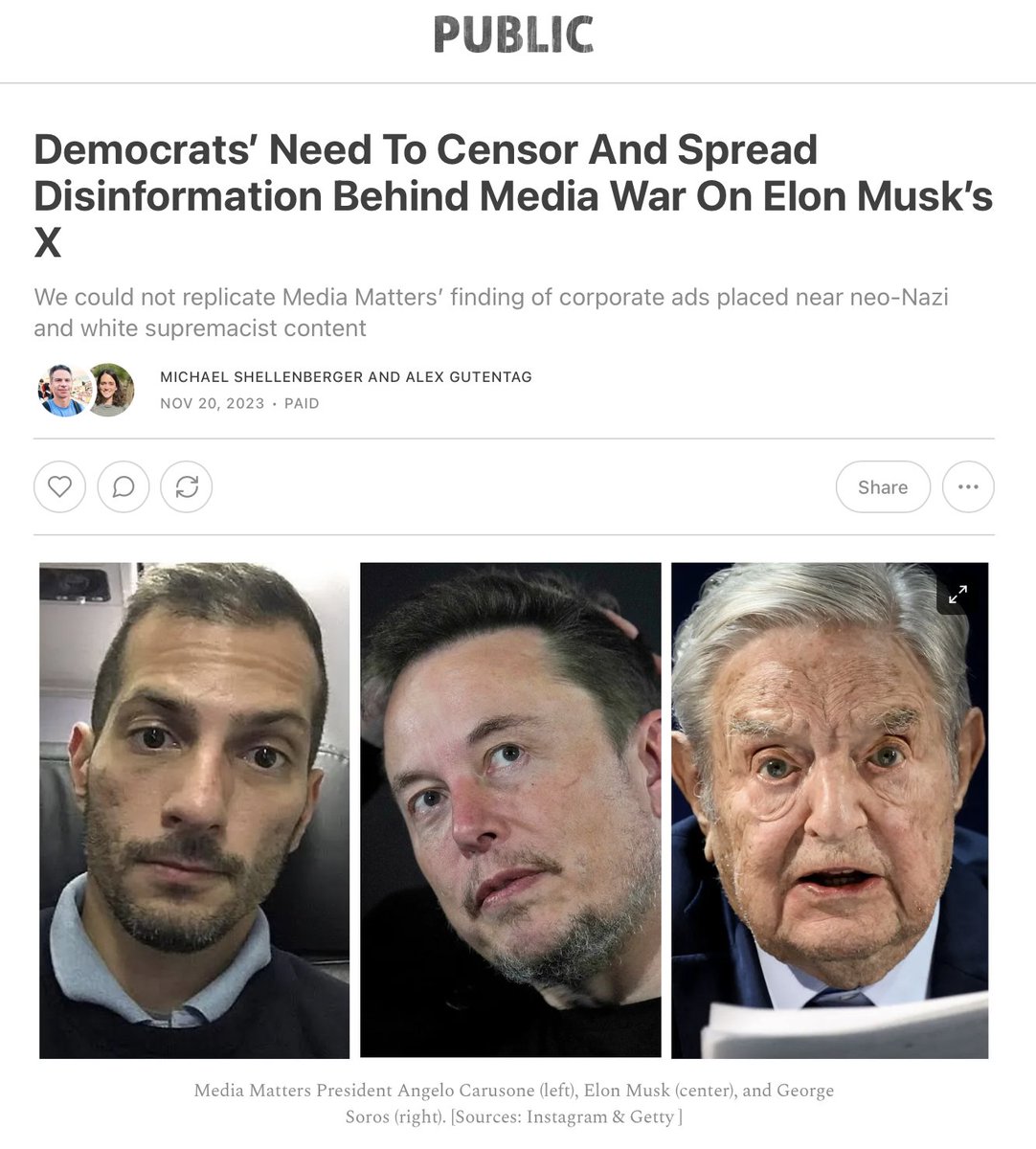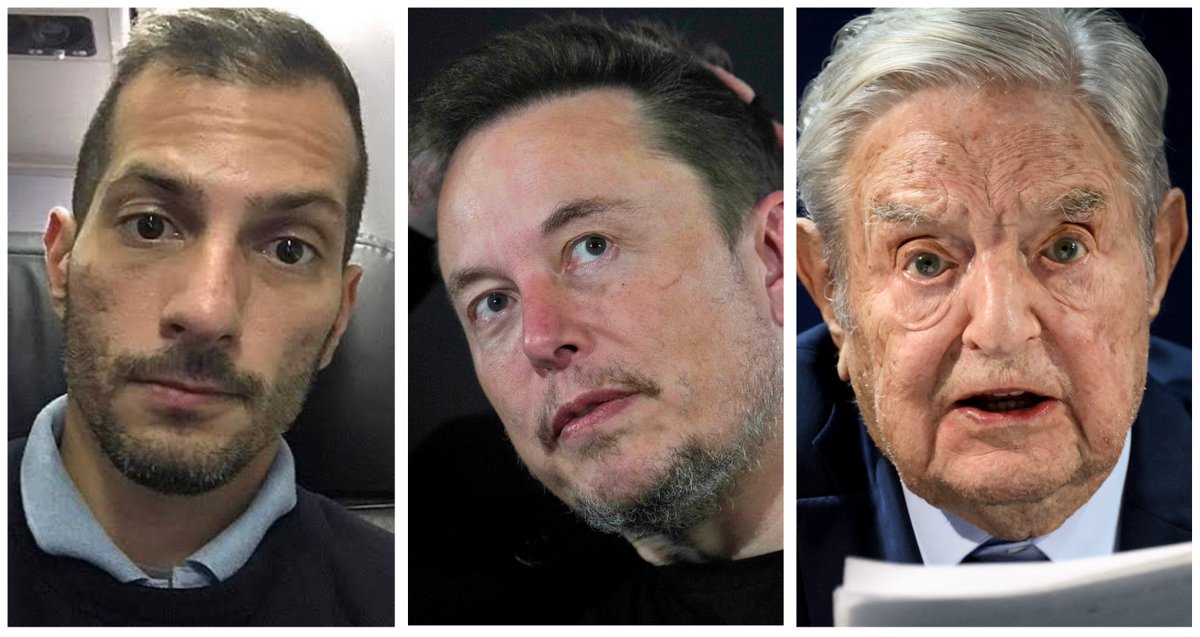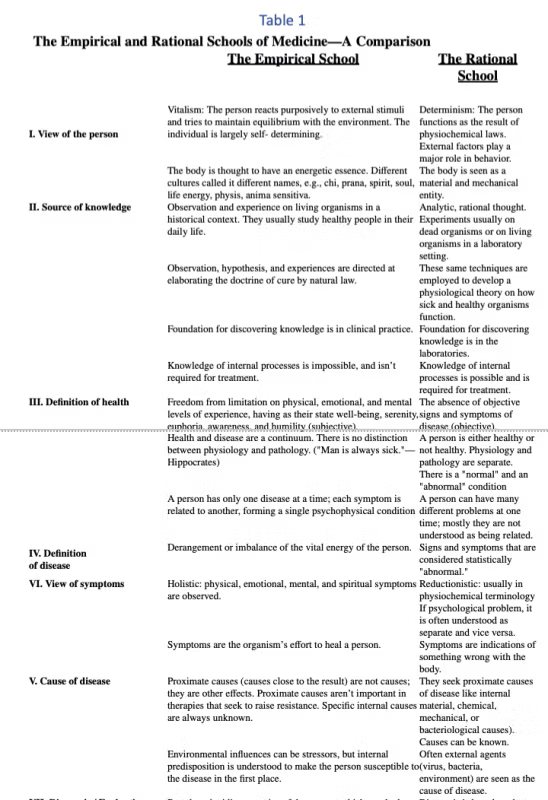The media say X is placing Apple, IBM, and other ads near pro-Nazi content, but it's not. We tried various ways to replicate Media Matters' research and couldn't. The real goal of Media Matters isn't to fight antisemitism. It's to destroy X as a free speech platform.

Democrats’ Need To Censor And Spread Disinformation Behind Media War On Elon Musk’s X
We could not replicate Media Matters’ finding of corporate ads placed near neo-Nazi and white supremacist content
by @shellenberger & @galexybrane
Media Matters President Angelo Carusone (left), Elon Musk (center), and George Soros (right). [Sources: Instagram & Getty ]
On Thursday, Media Matters For America published an article alleging that the social media platform X has been placing ads for major companies next to pro-Nazi content. “As X owner Elon Musk continues his descent into white nationalist and antisemitic conspiracy theories,” wrote Media Matters reporter Eric Hananoki, “his social media platform has been placing ads for major brands like Apple, Bravo (NBCUniversal), IBM, Oracle, and Xfinity (Comcast) next to content that touts Adolf Hitler and his Nazi Party.”
In response, major companies, including Disney, Warner Bros, Comcast, IBM, and Apple, have pulled ads from X in a blow to the company’s revenue.
However, according to the X Safety team, Media Matters’ report was done by making a fake X account and then curating posts and ads to manipulate the account’s timeline. “These contrived experiences could be applied to any platform,” X argues.
X’s analytics suggest that Media Matters repeatedly refreshed the timeline of the account it created to cause X to generate ads near hateful posts. The account, X says, saw thirteen times the number of ads a median X user sees.
According to X, in at least one instance, the Media Matters author was the only user to see a specific ad placement. “Of the 5.5 billion ad impressions on X that day, less than 50 total ad impressions were served against all of the organic content featured in the Media Matters article,” X Safety wrote.
We should not blindly trust X’s defense of its ad policy. X obviously has a bias in how it measures its trust and safety.
And so Public attempted to reproduce Media Matters’ methods to see if we found ads next to the content in question. We created an account and followed eleven of the neo-Nazi accounts in Media Matters’ report starting yesterday, November 19.
After refreshing both X’s “For You” page and “Following” page more than ten times and scrolling through the timeline each time, we did not observe ads next to white nationalist or pro-Nazi content.
We followed more extremist accounts and repeated this process after following thirty accounts. Still, we did not find ads on the timeline. We also opened each account’s page and did not observe ads there. Nor did we find ads under the replies to their posts.
Media Matters did not respond to our inquiry about the exact methods it used for its report.
It’s possible that Public’s methods did not exactly replicate Media Matters’ or that our account was too new to see ads. It’s also possible that X has already changed its ad policy in response to Media Matters, or there are fewer ads on the platform now that major advertisers have left.
In any case, both Public’s test and X’s analysis suggest that the ad incidents Media Matters found were very rare.
Despite the lack of verified evidence behind Media Matters’ claims, its tactics are highly effective. For companies, any association with racism or Nazi ideology is a major liability and they are easily swayed to pull advertising.
In 2020, the Anti-Defamation League (ADL), along with other advocacy organizations, got hundreds of companies to boycott Facebook, leading the platform to remove content that groups that ADL disliked. In 2017, another advertiser boycott forced YouTube to ramp up its censorship.
And yet the head of Media Matters, Angelo Carusone, has himself made prejudicial remarks. He wrote, publicly, on a blog, that his boyfriend was “adorable… despite his jewry,” and that a friend leaned conservative “as a result of his possession of several bags of Jewish gold.” Carusone wrote “lighten up Japs” about the Japanese. And he wrote dismissively of “trannies.”
Carusone told the Washington Post, which rushed to his defense, “It’s true: I wrote some gross things on my blog while I was in college. A few posts parodying living my life as if I were a self-loathing, bigoted Limbaugh right-winger. And every time Media Matters takes some meaningful action, some awful people bring it up to try to stop us. And every time, I will acknowledge that the writing was gross and apologize because the context only explains; it doesn’t excuse.”
While we applaud Carusone for acknowledging his past prejudice, the episode underscores that the Left’s concerns with X have nothing to do with antisemitism and everything to do with its need to control the information voters receive.
What, then, is going on here, exactly? Why is Media Matters leading a disinformation campaign and advertiser boycott against Elon Musk’s X? Who is Media Matters, exactly? And what’s its real agenda?

We could not replicate Media Matters’ finding of corporate ads placed near neo-Nazi and white supremacist content
by @shellenberger & @galexybrane
Media Matters President Angelo Carusone (left), Elon Musk (center), and George Soros (right). [Sources: Instagram & Getty ]
On Thursday, Media Matters For America published an article alleging that the social media platform X has been placing ads for major companies next to pro-Nazi content. “As X owner Elon Musk continues his descent into white nationalist and antisemitic conspiracy theories,” wrote Media Matters reporter Eric Hananoki, “his social media platform has been placing ads for major brands like Apple, Bravo (NBCUniversal), IBM, Oracle, and Xfinity (Comcast) next to content that touts Adolf Hitler and his Nazi Party.”
In response, major companies, including Disney, Warner Bros, Comcast, IBM, and Apple, have pulled ads from X in a blow to the company’s revenue.
However, according to the X Safety team, Media Matters’ report was done by making a fake X account and then curating posts and ads to manipulate the account’s timeline. “These contrived experiences could be applied to any platform,” X argues.
X’s analytics suggest that Media Matters repeatedly refreshed the timeline of the account it created to cause X to generate ads near hateful posts. The account, X says, saw thirteen times the number of ads a median X user sees.
According to X, in at least one instance, the Media Matters author was the only user to see a specific ad placement. “Of the 5.5 billion ad impressions on X that day, less than 50 total ad impressions were served against all of the organic content featured in the Media Matters article,” X Safety wrote.
We should not blindly trust X’s defense of its ad policy. X obviously has a bias in how it measures its trust and safety.
And so Public attempted to reproduce Media Matters’ methods to see if we found ads next to the content in question. We created an account and followed eleven of the neo-Nazi accounts in Media Matters’ report starting yesterday, November 19.
After refreshing both X’s “For You” page and “Following” page more than ten times and scrolling through the timeline each time, we did not observe ads next to white nationalist or pro-Nazi content.
We followed more extremist accounts and repeated this process after following thirty accounts. Still, we did not find ads on the timeline. We also opened each account’s page and did not observe ads there. Nor did we find ads under the replies to their posts.
Media Matters did not respond to our inquiry about the exact methods it used for its report.
It’s possible that Public’s methods did not exactly replicate Media Matters’ or that our account was too new to see ads. It’s also possible that X has already changed its ad policy in response to Media Matters, or there are fewer ads on the platform now that major advertisers have left.
In any case, both Public’s test and X’s analysis suggest that the ad incidents Media Matters found were very rare.
Despite the lack of verified evidence behind Media Matters’ claims, its tactics are highly effective. For companies, any association with racism or Nazi ideology is a major liability and they are easily swayed to pull advertising.
In 2020, the Anti-Defamation League (ADL), along with other advocacy organizations, got hundreds of companies to boycott Facebook, leading the platform to remove content that groups that ADL disliked. In 2017, another advertiser boycott forced YouTube to ramp up its censorship.
And yet the head of Media Matters, Angelo Carusone, has himself made prejudicial remarks. He wrote, publicly, on a blog, that his boyfriend was “adorable… despite his jewry,” and that a friend leaned conservative “as a result of his possession of several bags of Jewish gold.” Carusone wrote “lighten up Japs” about the Japanese. And he wrote dismissively of “trannies.”
Carusone told the Washington Post, which rushed to his defense, “It’s true: I wrote some gross things on my blog while I was in college. A few posts parodying living my life as if I were a self-loathing, bigoted Limbaugh right-winger. And every time Media Matters takes some meaningful action, some awful people bring it up to try to stop us. And every time, I will acknowledge that the writing was gross and apologize because the context only explains; it doesn’t excuse.”
While we applaud Carusone for acknowledging his past prejudice, the episode underscores that the Left’s concerns with X have nothing to do with antisemitism and everything to do with its need to control the information voters receive.
What, then, is going on here, exactly? Why is Media Matters leading a disinformation campaign and advertiser boycott against Elon Musk’s X? Who is Media Matters, exactly? And what’s its real agenda?

Please subscribe now to support the free speech movement and to read the rest of the article!
----------------------------------------------------
Source
https://threadreaderapp.com/thread/1726671127840493811.html

No comments:
Post a Comment